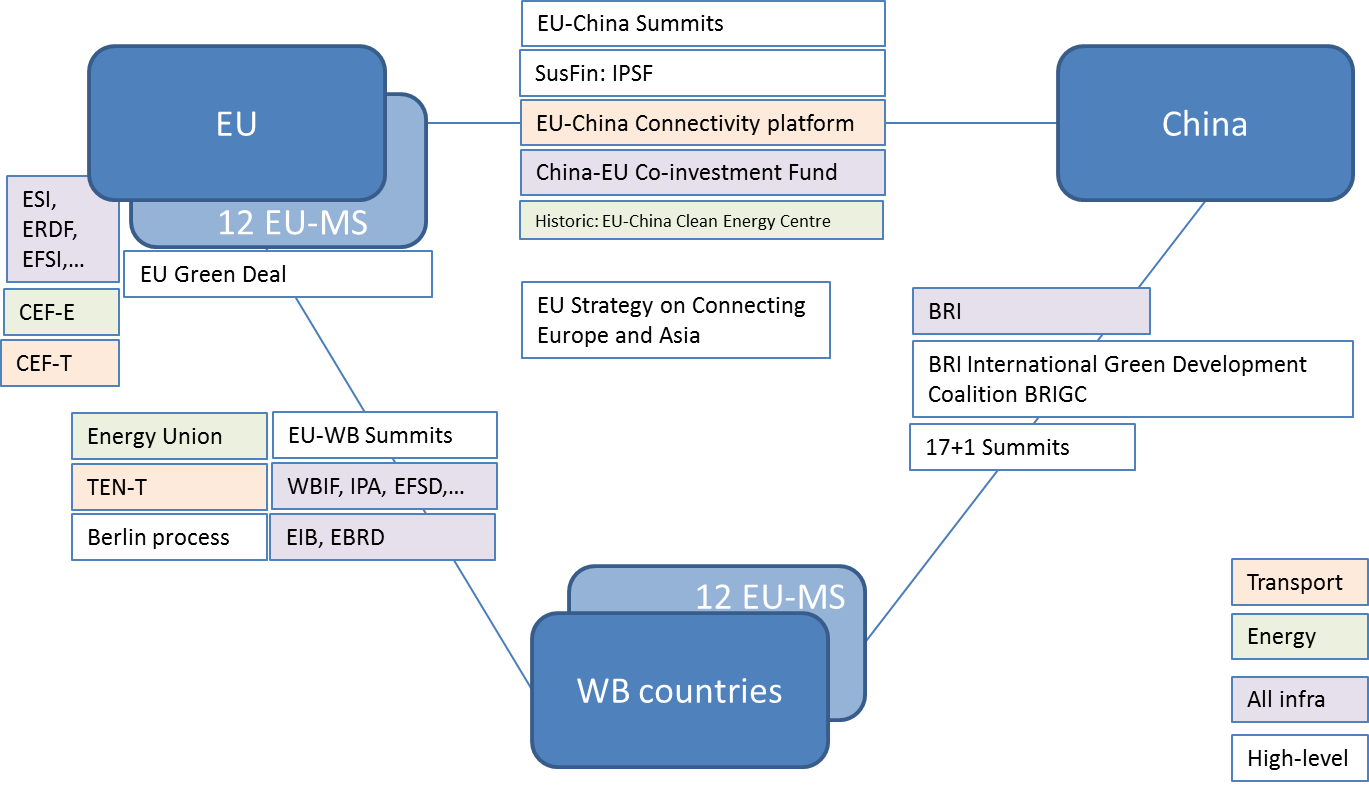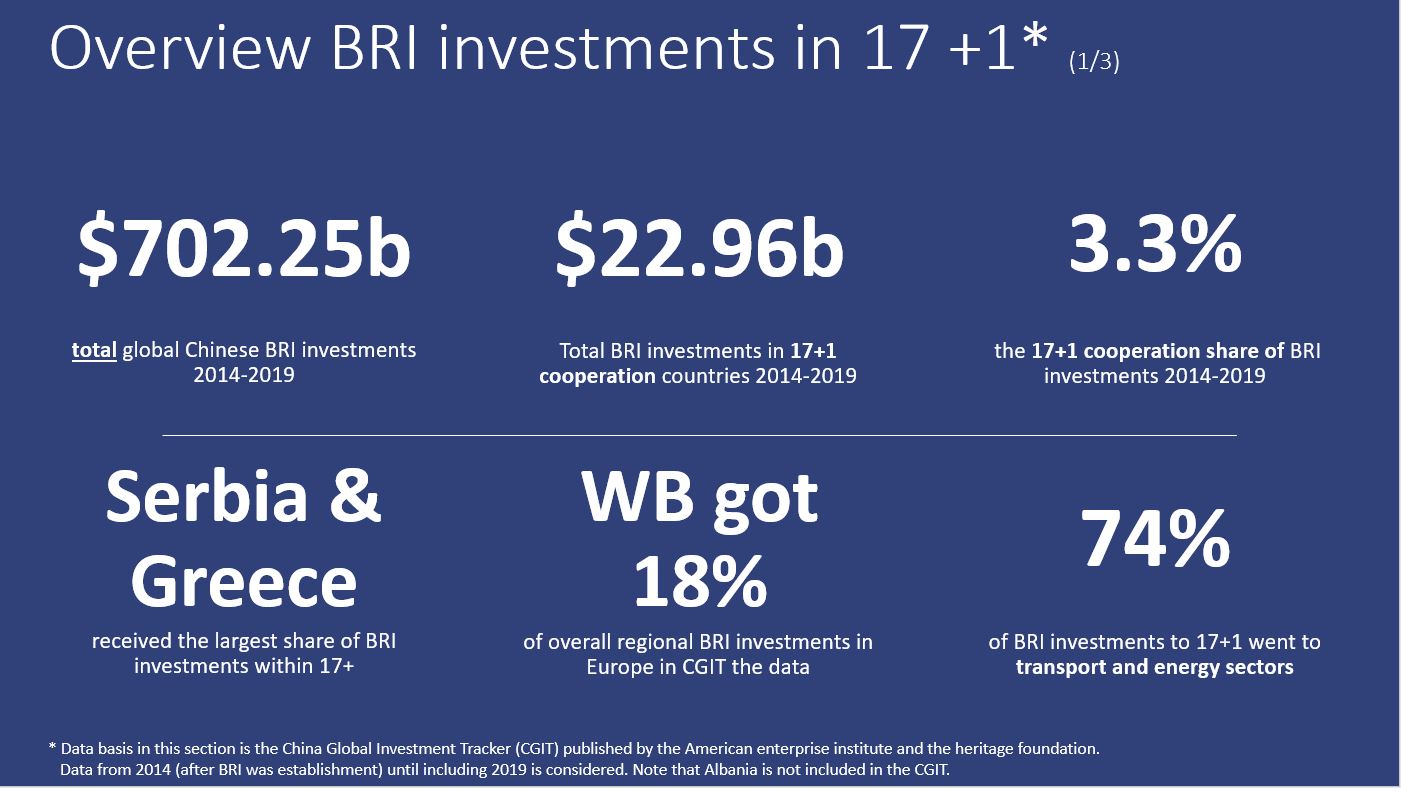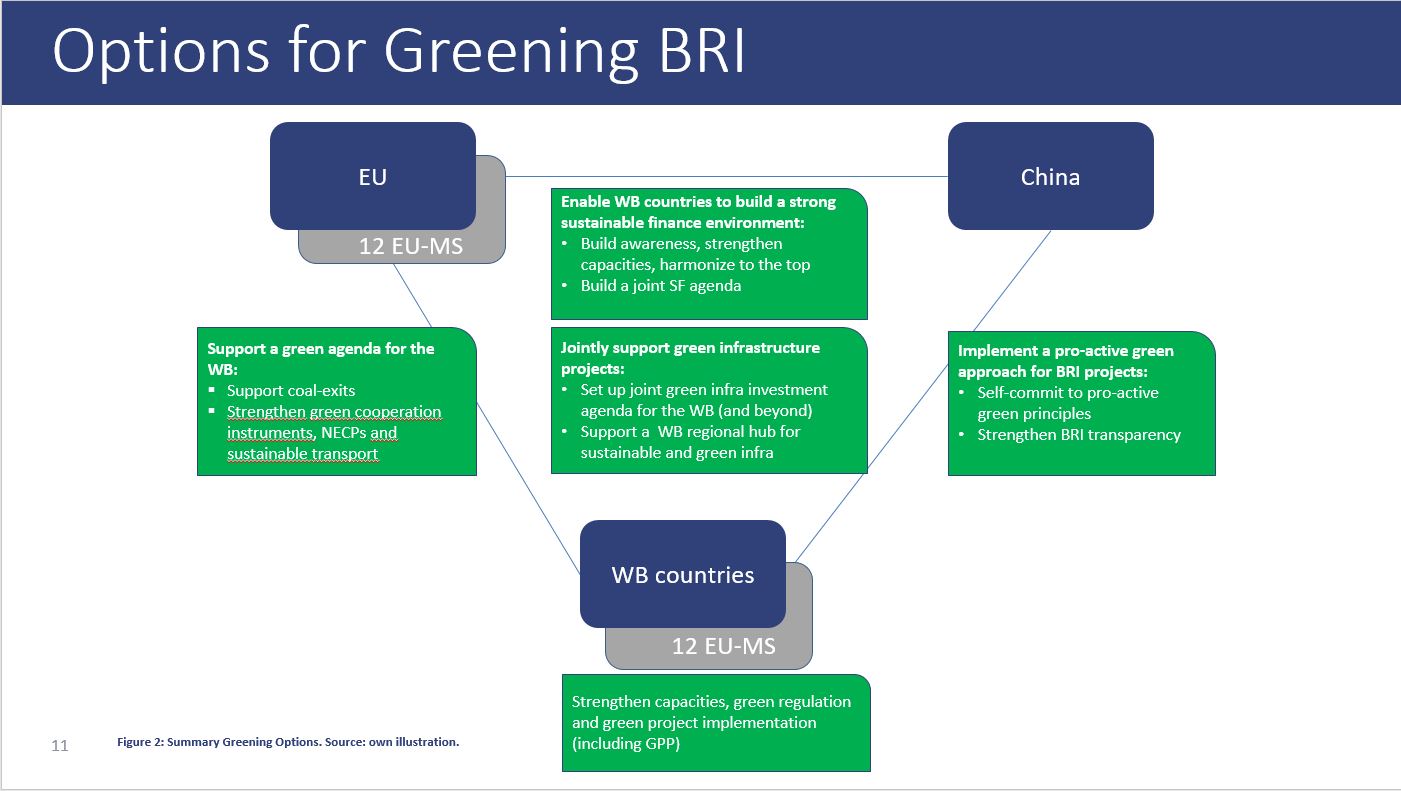Greening Belt and Road Initiative (BRI)
Description of Project
Infrastructure investments can be a key driver for sustainable economic development. Chinese infrastructure investment under the umbrella of China’s Belt & Road Initiative (BRI) into Western Balkan countries and more broadly the 17 South-East-European BRI partner countries under the “17+1” cooperation is gaining importance; in particular BRI energy investments relate to several coal-fired power plants in the region.
The project analyzed Chinese investment in the energy and transport infrastructure in the region and looks into options how Chinese and in fact all energy and transport infrastructure investments into the South and Central Eastern European countries can be implemented in line with good environmental and sustainable practices.
The study
The resulting study provides an overview on the relevant backgrounds related to Chinese infrastructure investments in the 17+ countries, the respective EU frameworks for sustainable infrastructure and the status quo in the Western Balkan infrastructure regulatory frameworks.

The study also gives an overview on the status quo of Chinese BRI investments in the 17+ partner countries in the energy and transport sector, based on both external data as well as an own project database, amended by an overview of EU investment support instruments to Western Balkan infrastructure.

Next to the investment overview, the study performs an in-depth analysis of five BRI projects looking into the model of Chinese involvement, environmental issues and discusses the status quo of greening/sustainability.

Drivers for a greener approach exist for China, the EU and the WB countries. They include the strategic relevance of WB countries for EU and the need to link them with its long-term EU green deal. EU accession perspective and international commitments such as to the Paris Agreement support an increasing case for WB countries to converge with EU climate policies. China’s recent carbon neutrality pledge, together with its growing commitment to link its domestic sustainability agenda with the BRI, make a case for a greener BRI approach in the region.
Options for greening energy and transport infrastructure investments in the 17+ countries span EU-China, EU-WB and options for the 17+1 cooperation and have in common that they involve a pro-active green approach by all stakeholders.

Building on this analysis, the study formulates five policy recommendations for greener energy and transport recommendations in the South-Eastern-European region:
- Transform the 17+1 cooperation into a pro-active regional green hub of the BRI
- Shape a clear and ambitious European green agenda with the Western Balkans
- Establish a regional centre of excellence for green and sustainable infrastructure in the Western Balkans
- Build a joint EU-China-WB investment agenda for green and sustainable infrastructure investments
- Shape a WB sustainable finance agenda through EU-China leadership under the IPSF